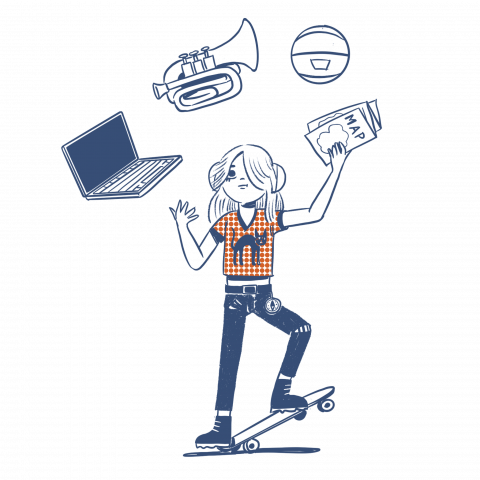Findings from the Student Forums project
Building upon the existing academic research and resource scan, and leading into the development of the Life Ed suite of teacher resources, students from around Australia were engaged in conversation to specifically ask how they felt about the school transition experience and what they thought might help them or other students in the move to secondary (or secondary-style) education. This research is detailed in the research report (Sniedze-Gregory et al., 2021) and summarised below.
From March–May 2021, 15 schools in four Australian states (NSW, Qld, SA & WA) were visited, and 444 students interviewed to collect their thoughts and opinions on the school transition experience. Students interviewed were in the year level either immediately prior to or after transition – generally Year 6 or Year 7 respectively (1) – and were chosen so that they could provide direct information on the successes and challenges they were experiencing related to school transition. The 15 schools visited included a range of primary, secondary, and combined schools, so that experiences related to these different contexts could also be captured.

During the interviews, students could provide spoken responses, or provide written responses in a booklet. The student booklet used in the Student Forums project is included in one of the classroom activities for this module. The booklet was particularly useful in capturing student voice related to the transition experience, and lends itself well to a more individualised classroom context: through using the booklet, teachers can gain a baseline understanding of their students’ feelings about transition and their experiences to date.
The common aspects of school transition that were commented on by students included academic expectations in secondary school (particularly the perceived increase in level and workload), secondary school operational systems, and the social scene. Student responses to each of these aspects were both positive and negative. For example, some students were worried about the more-difficult work whereas others were looking forward to the academic challenge; some students were looking forward to meeting new peers while others were nervous about being in a new social environment. The main topics of importance to students included:
- School operations (maps, timetables, how to not get lost or not be late)
- Academics (how difficult the work is, and what to do if it was too difficult)
- Workload (how much schoolwork/homework there is, and how to get it done)
- Social elements (how to make new friends; how to keep in touch with old friends)
- School–life balance (how to make sure there was still time for sports, hobbies and relaxation)
Each of these aspects are directly addressed in the Life Ed suite of transition classroom activities found in the Classroom Activities section of this resource. The classroom activities also draw upon the preferred learning methods that students identified during the forums, including action-based, technology-based, self-directed, and peer-collaborative.
-----
(1) With exceptions in SA, where Year 7 is incorporated into government secondary schools from 2022 onward. 'Pre-transition' for SA was therefore Year 6 and Year 7, and “post-transition” was Year 8.